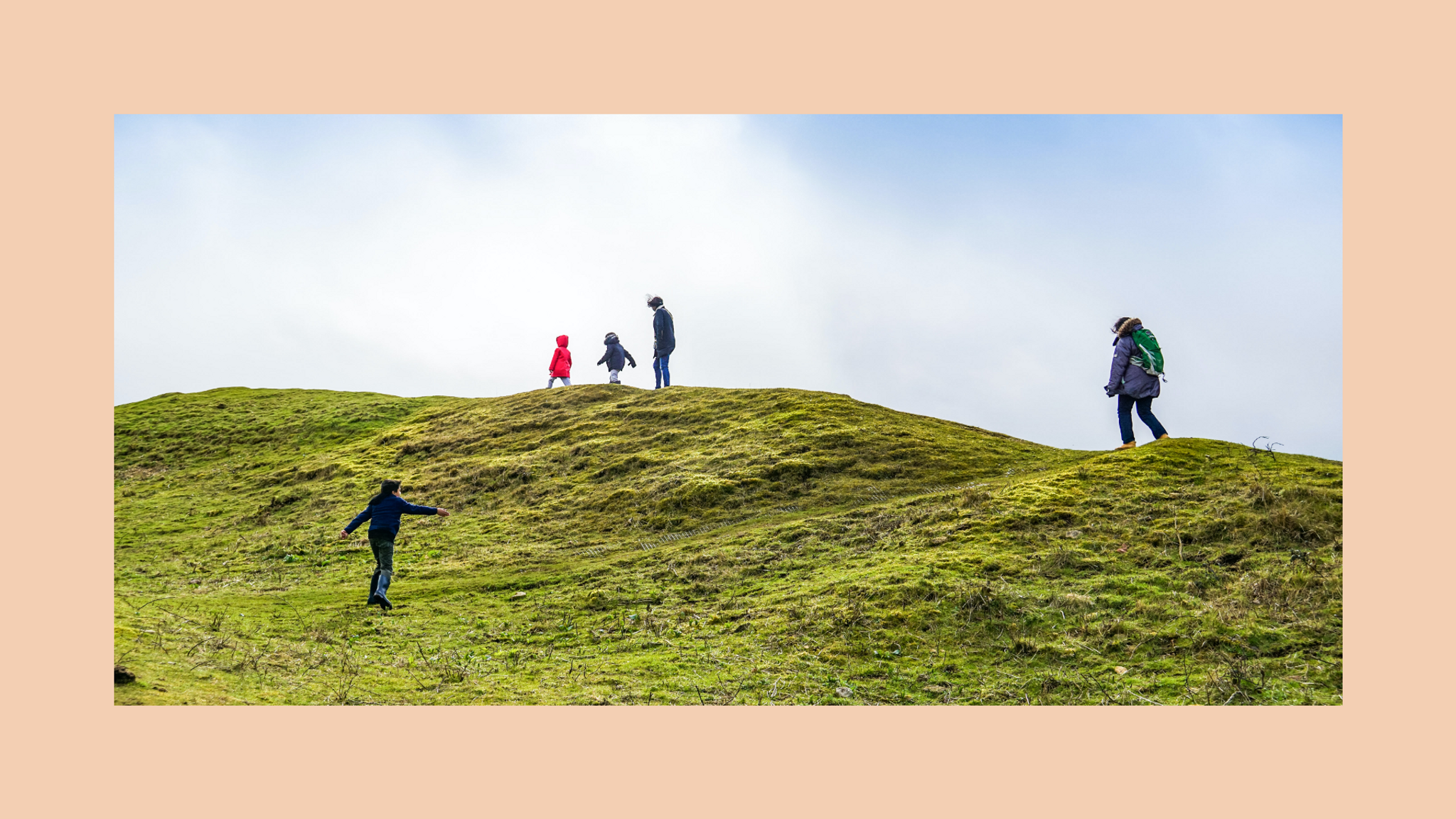Getting to net zero starts with confronting where we are

A family hiking in the Cotswold hills. Photo: Fas Khan
In October 2021, The Bartlett Faculty of the Built Environment at UCL announced a target to reduce its greenhouse gas emissions to net zero by 2030, 20 years ahead of the UK's official net zero commitment. By adopting this target, The Bartlett endorses the principle that organisations in cities and countries that have benefitted from centuries of fossil fuel use should now lead the way to a net zero future.
In setting our net zero target, we committed to three guiding principles. First, we promised to be comprehensive – to include all emissions for which we should hold ourselves accountable, and not leave some activities out of scope simply because they seem too difficult to address. Second, we committed to transparency – to review our progress regularly and communicate honestly about both our successes and failures.
Third, we committed to prioritise emissions reductions over offsetting. Offsetting refers to paying for the removal of emissions from the atmosphere in other projects, such as tree planting, to ‘cancel out’ emissions that cannot be avoided. It is almost certain that some recourse to offsetting will be a part of any organisation’s net zero plan, but we committed to keep offsetting to a minimum, prioritising the avoidance of emissions in the first place.
Our first year of work towards our net zero target has involved understanding where we are, in order to know how to go forward. In some cases, even this basic first step has been something of a challenge. In understanding the emissions of each Bartlett activity in order to identify the most effective emissions-reducing options, we have been supported by students, who have undertaken projects to understand, process and draw conclusions from the data we have available.
We are examining the energy we use – such as heating and electricity – across The Bartlett’s buildings, and working with UCL Estates to identify ways of achieving energy and emissions savings, especially at times of low occupancy, for example through the optimisation of automated lighting systems. With energy prices recently reaching record-high levels, these measures will increasingly offer a ‘double-win’ of environmental and economic benefits. Meanwhile, Sustainable UCL – a cross-UCL team dedicated to driving forward the university's key sustainability aims – is aiming to ensure that UCL buys its energy from verifiably low-carbon sources.
The products we buy and consume also create emissions, from office equipment to machines in workshops. A team of students and academics has begun to calculate the baseline emissions of these products, helping to identify the categories of purchases that contribute most to our carbon footprint, and how our future procurement decisions could help reduce emissions.
Emissions also result from the travel undertaken by Bartlett staff and students. We travel for a variety of reasons: to undertake place-based research, to share knowledge at conferences and to build global partnerships. Some of these cannot be substituted by online communications without loss of effectiveness. We are now addressing the difficult question of how we can make our travel consistent with our net zero target, without compromising the richness of our research and teaching, and the development of our staff. It remains a huge challenge, and we are consulting across the faculty in order to find a constructive way forward.
Addressing all of these challenges, and carefully considering their implications for the way The Bartlett operates, requires collaboration between academic, research, teaching and professional services staff, students and suppliers. It is also crucial that we enable all parts of The Bartlett to remain aware of and to engage with the process. To that end, in February 2022 we established a Net Zero Advisory Group, consisting of 12 representatives from across the faculty and from Sustainable UCL. The members of the group communicate progress on net zero back to their respective parts of the faculty, and help to ensure that any concerns raised in relation to the net zero transition can be taken account of early on in the development of the strategy.
For an organisation to commit to and pursue an accelerated net zero trajectory is by no means an easy or straightforward thing. But, to borrow words from John F Kennedy, we choose to do these things “not because they are easy, but because they are hard”. By committing to this target, to pursuing it with comprehensiveness and transparency, and by prioritising emissions reductions before buying our way out with offsets, we hope that we can not only make a real contribution to improving the sustainability of The Bartlett, but also that our experiences may be of interest and inspiration to other organisations aiming to undertake their own net zero journey.


